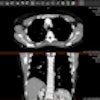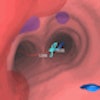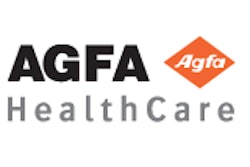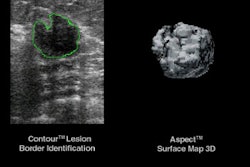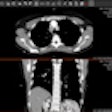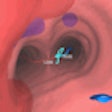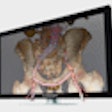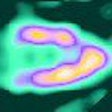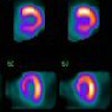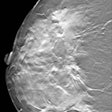
Integration is something Misys knows about. The company, based in Worcestershire, U.K., began in 1979 as a supplier of computer systems to U.K. insurance brokers. In 1988 it set out to broaden its range of activities and strengthen its market position through a series of acquisitions.
Spearheaded by Misys chairman Kevin Lomax, the firm's strategy was to reduce its exposure to a single market, and increase its size in a series of new business sectors. Since 1992, the company has diversified into banking and securities, financial services, business-to-business Internet services, and healthcare in the U.S.
In 1997, Misys acquired Raleigh, NC-based Medic Computer Systems, a physician practice-management and clinical information systems software developer. In June 2001, the firm completed a $404 million deal for Tucson, AZ-based RIS developer Sunquest Information Systems.
In January of this year, both firms were brought under the company’s healthcare division, Misys Healthcare Systems, run by chief executive Tom Skelton. The group is made up of Medic, renamed Physicians Systems, and Sunquest, now known as Hospital Systems. As an entity within the organization, the division generates 24% of the profit, 22% of the revenue, and maintains 25% of the firm's employees.
Some of the Hospital Systems product lines have also gotten facelifts. FlexiRad, Sunquest’s flagship RIS product, was renamed Misys Radiology earlier this year. The product is currently being supported at more than 150 sites throughout the U.S., and has been slated for installation at several new facilities since the first of the year, said Ken Kark, marketing communications director for the group.
One of the hurdles in bringing the group’s technology into radiology was the market’s perception of Sunquest as primarily a laboratory information systems (LIS) developer, according to Kark.
"This perception made it a challenge for our company to position ourselves outside the LIS market segment. What we are working to achieve with our new name and brand is market leadership in healthcare IT, which includes laboratory, radiology, and pharmacy, financial, decision support and Web-based information products in addition to our services as a clinical suite," he said.
New enhancements
As part of the strategy, Hospital Systems will use this week’s SCAR meeting to highlight several enhancements to its radiology product line. First and foremost will be the PACS integration options for its Misys Radiology RIS.
The product features automatic reconciliation of DICOM header information to eliminate broken studies, automatic routing and pre-fetching of exams, and determination and routing of relevant previous exams. In addition, the group has successfully integrated Agfa HealthCare’s Talk Technology-developed TalkStationRadiology speech-recognition system into the product. Bundling that application adds further clinical workflow and reporting capabilities to the RIS, Kark said.
Misys Radiology has incorporated a feature that automates insurance preauthorization by allowing the association of authorization requirements to be uniquely associated to exams and insurers. The utility simplifies paper workflow, reduces the chance of clerical errors, and ensures that reimbursements are processed in a timely and accurate manner, according to the company.
Improvements have also been made to the multiple active master folder and scheduler features of the application. In addition, T4 faxing has been added to provide automated patient report delivery, a feature the group believes will decrease turnaround time and expedite report distribution at a lower cost.
Proxy signatures support -- a feature that allows multiple radiologists to review and approve patient reports -- has also been integrated into the product. Advanced controls will allow system administrators to determine proper waiting periods before report advancement to secondary levels for review.
According to Kark, the Hospital Systems division is scheduled to make its PACS product generally available in the first quarter of 2003. In the meantime, the group will continue to partner with Newton, MA-based Amicas to provide image management to Misys Radiology clients who request it.
Also slated for makeover under the new management is the group’s business-to-business Web subsidiary, formerly known as Diagnostix.com. The product has been relaunched as Misys Encompass, and will no longer be a centrally hosted application service provider (ASP) that serves as a repository for clinical information.
Instead, based on user feedback to prototypes, the product will be a client-hosted Web service that allows institutions to maintain ownership of their patient data. Yet it will still be possible to perform Web-based ordering, and obtain results and clinical information from Misys’ laboratory, radiology, and pharmacy systems, and possibly other vendor systems.
Kark believes the radiology market is looking for much more than another RIS or replacement RIS. "PACS and voice integration with a well-designed RIS that optimizes the radiologist’s workflow, coupled with the backing of a financially sound vendor that delivers outstanding support and service, will be the RIS leader in the future," he said.
In order to achieve its goals, the Hospital Systems group will be adding 80 positions in development, sales, and support areas during the current year. Kark feels that this commitment to product growth, coupled with an installed base of more than 1,200 hospital sites using the group’s laboratory product, will give the firm a chance to increase its penetration in the enterprise solutions market.
By Jonathan S. BatchelorAuntMinnie.com staff writer
May 3, 2002
Related Reading
Misys delivers RIS to Bermuda hospital, March 1, 2002
PACS: The best thing to happen to RIS?, February 18, 2002
Sunquest to supply Cancer Treatment Centers of America, January 21, 2002
Sunquest's FlexiRad features brokerless PACS, November 28, 2002
Sunquest lands RIS deal, November 17, 2001
Copyright © 2002 AuntMinnie.com


